| Because there is a concern of possible increased growth of cancer with human growth hormone supplementation, anyone with cancer must discuss human growth hormone therapy with his or her oncologist.
Human growth hormone, when used appropriately, is a very safe and effective way to improve health and reverse many of the signs of aging. As with all of the hormones mentioned in this book, it is important to seek care from a health care practitioner knowledgeable in the use of natural hormones.
" Klatz, Ronald. Grow Young With HGH. Harper Collins, 1995, p. |
Lita Lee, Lisa Turner and Burton Goldberg
See book keywords and concepts |
 For example, candidiasis (yeast overgrowth) responds well to cellulase supplementation, but a cellulase deficiency is not the cause of this weakened immune condition.
Loomis 24-Hour Urinalysis
The diagnostic procedure for enzyme deficiency requires a urinalysis as developed by Dr. Loomis. This test is not to be confused with the typical medical urinalysis which only diagnoses pathology, nor with other urine tests, such as the Reams test, which are based upon random urine samples. The Loomis test determines enzyme deficiencies and isolates digestive disorders and nutrient deficiencies. For example, candidiasis (yeast overgrowth) responds well to cellulase supplementation, but a cellulase deficiency is not the cause of this weakened immune condition.
Loomis 24-Hour Urinalysis
The diagnostic procedure for enzyme deficiency requires a urinalysis as developed by Dr. Loomis. This test is not to be confused with the typical medical urinalysis which only diagnoses pathology, nor with other urine tests, such as the Reams test, which are based upon random urine samples. The Loomis test determines enzyme deficiencies and isolates digestive disorders and nutrient deficiencies. |
| Many physicians advocate the dietary use and supplementation of essential fatty acids in the form of fish, primrose, borage, and flaxseed oils, among others, in the unsaturated category. There is research to support both positions.
Foods That Help Control Diabetes
?Complex carbohydrates: potatoes, brown rice, other whole grains. Make sure that grains are whole and preferably organic. |
| Many physicians advocate the dietary use and supplementation of essential fatty acids in the form of fish, primrose, borage, and flaxseed oils, among others, in the unsaturated category. There is research to support both positions.
A Profile of Fats
The terms "fats" and "oils" are generally, if erroneously, used interchangeably. In the strictest sense, fat denotes lipids (fats) that are solid at room temperature, while oil means lipids that are liquid at room temperature. Fats and oils are made of building blocks called fatty acids. |
| Many physicians advocate the dietary use and supplementation of essential fatty acids in the form of fish, primrose, borage, and flaxseed oils, among others, in the unsaturated category. There is research to support both positions.
For more about healthy and unhealthy fats, see
Chapter 3: What Causes Enzyme Deficiencies?, pp. 51-54.
Dietary Factors
The typical American diet of processed foods and heavy consumption of meat, fat, and refined sugars, with few high-fiber foods, has been correlated with increased incidence of gallstones. |
Dr. Gary Null
See book keywords and concepts |
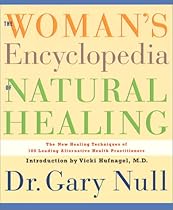 Hoekman, "Arginine supplementation in the Prevention and Treatment of Osteoporosis," Medical Hypotheses 43, no. 5 (November 1994): 339-42.
Factors relevant to prevention of osteoporosis include calcium status, vitamin D, fluoride, magnesium, and other trace elements, especially copper, manganese, and zinc. All of these trace elements are necessary for optimal bone development and density.
P. D. Saltman and L. G. Strause, "The Role of Trace Minerals in Osteoporosis," Journal of the American College of Nutrition 12, no. 4 (August 1993): 384-89. Hoekman, "Arginine supplementation in the Prevention and Treatment of Osteoporosis," Medical Hypotheses 43, no. 5 (November 1994): 339-42.
Factors relevant to prevention of osteoporosis include calcium status, vitamin D, fluoride, magnesium, and other trace elements, especially copper, manganese, and zinc. All of these trace elements are necessary for optimal bone development and density.
P. D. Saltman and L. G. Strause, "The Role of Trace Minerals in Osteoporosis," Journal of the American College of Nutrition 12, no. 4 (August 1993): 384-89. |
James Braly M.D. and Ron Hoggan M.A.
See book keywords and concepts |
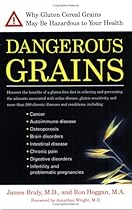 Vitamin D supplementation has now become the norm.
DIETARY DANGERS
Oats: To Eat or Not to Eat, That Is the Question
The inclusion of gluten-containing oats remains a bit of a hot topic among those who follow a gluten-free diet. Oats advocates point to current studies showing no change in shape or size of the intestinal villi of celiac patients. Since the gliadin proteins that cause damage to the intestinal villi have been identified and are not present in oats, oat advocates consider them safe to include in the gluten-free diet. Vitamin D supplementation has now become the norm.
DIETARY DANGERS
Oats: To Eat or Not to Eat, That Is the Question
The inclusion of gluten-containing oats remains a bit of a hot topic among those who follow a gluten-free diet. Oats advocates point to current studies showing no change in shape or size of the intestinal villi of celiac patients. Since the gliadin proteins that cause damage to the intestinal villi have been identified and are not present in oats, oat advocates consider them safe to include in the gluten-free diet. |
Barnet Meltzer, M.D.
See book keywords and concepts |
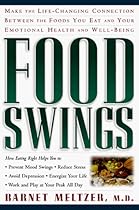 Advanced anxiety or depression demands the attention of a qualified psychiatrist in addition to talk therapy, nutritional healing, and vitamin supplementation. In my experience, patients suffering from extreme anxiety and/or depression are candidates for prescriptive agents. But individuals in the first or second stage of anxiety or depression can be healed with top-notch emotional counseling and high-performance foods. No drugs.
The purpose of this chapter is to identify the therapeutic foods that naturally alleviate anxiety and depression. Advanced anxiety or depression demands the attention of a qualified psychiatrist in addition to talk therapy, nutritional healing, and vitamin supplementation. In my experience, patients suffering from extreme anxiety and/or depression are candidates for prescriptive agents. But individuals in the first or second stage of anxiety or depression can be healed with top-notch emotional counseling and high-performance foods. No drugs.
The purpose of this chapter is to identify the therapeutic foods that naturally alleviate anxiety and depression. |
| To recolonize the intestinal tract, probiotic supplementation at a dosage of one-to ten-billion cells daily, in liquid or tablet form, for at least six to ten weeks, is advised. I also recommend pancreatic digestive enzymes, taken in tablet form. With the exception of nystatin, all are available over the counter at pharmacies and health food stores.
5. Food Intolerance
If you consistently experience unfavorable reactions to certain foods, it's possible that you're allergic to or intolerant of those items. |
John R. Smythies
See book keywords and concepts |
| According to Rucker and Stites, writing in 1994, "a decade ago, it was considered highly speculative to propose approaches to disease prevention that involved supplementation. Nutrition paradigms important to vitamin function, however, have now shifted to include more focus on disease prevention and consideration of supplements." [182]. As Voelker put it in an editorial in the]ournal of the American Medical Association, the flagship of the medical establishment, in the same year [222]: "The stew of data describing antioxidants' disease prevention potential is coming to a boil. . . . |
| The Established Population for Epidemiological Studies in the Elderly examined the role of antioxidant supplementation (vitamins E and C) in a population of 11,178 people aged 67 to 105. Supplements of vitamin E alone were significantly correlated with a lower mortality rate from heart attacks [128].
A summary of double-blind, placebo-controlled studies is as follows: þVitamin E appeared to reduce the mortality rate from heart attacks in one study (20) but not in two others (17, 19). þVitamin E appeared to reduce the number of heart attacks in all four studies (17-20). |
| The researchers concluded that longer, even lifetime, supplementation will be needed to combat such a slowly developing process as cancer.
The editorial that accompanied these reports in the New England Journal of Medicine argues (i) that beta-carotene as a sole supplement for cancer prevention is contraindicated, (ii) that the value of antioxidant supplements in general remains unclear, and (iii) that the protective effect of diet (especially the strong evidence for fruits, vegetables, and grains) remains important. |
| Such patients may need antioxidant supplementation.
There is also evidence that reactive oxygen species are a feature in cerebral vasospasm (contraction of the arteries of the brain). In animals antioxidants were effective in reducing vasospasm, particularly if applied locally. This might have some application in neurosurgery.
However, a warning note has yet again been struck. |
James Braly M.D. and Ron Hoggan M.A.
See book keywords and concepts |
 In order to prevent spina bifida, folic acid supplementation is of prime importance to women wishing to become pregnant. Low folate levels should alert us and should encourage appropriate testing.
An excellent predictor of risk for heart attacks and strokes is the level of free homocysteine in your blood. It may be elevated in as many as 30 percent of all people with a history of heart attacks. As with cholesterol and blood-pressure measurements, routine testing for homocysteine should be part of your annual physical. When it is high-normal or elevated, this is cause for concern. In order to prevent spina bifida, folic acid supplementation is of prime importance to women wishing to become pregnant. Low folate levels should alert us and should encourage appropriate testing.
An excellent predictor of risk for heart attacks and strokes is the level of free homocysteine in your blood. It may be elevated in as many as 30 percent of all people with a history of heart attacks. As with cholesterol and blood-pressure measurements, routine testing for homocysteine should be part of your annual physical. When it is high-normal or elevated, this is cause for concern. |
| However, magnesium levels are very difficult to measure accurately, so it is probably more useful to monitor the many functions that improve as a result of magnesium supplementation. For instance, improvements in bone density and parathyroid hormone levels in the blood can both be good indicators that magnesium supplements are providing benefits. Reduction or disappearance of bone pains, muscle twitching, and an inclination to muscle cramping can all indicate the value of supplementing magnesium.
This important mineral also loosens the bowels. |
| That means that many individuals with celiac disease will derive important benefits from magnesium supplementation. We can only speculate that similar benefits might be derived by many of those who are gluten sensitive. Magnesium deficiency may play a key role in many of the common symptoms and medical conditions overrepresented in untreated celiacs and gluten-sensitive individuals, including osteoporosis, migraine headaches, muscle pain or spasms, major depression, chronic fatigue, premenstrual syndrome, asthma, autism, heart disease (cardiomyopathies] in children, and seizures. |
Stephen T., M.D. Sinatra
See book keywords and concepts |
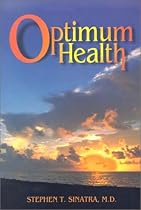 Later in this chapter and the next, I will give you specific recommendations concerning vitamin and mineral supplementation. Since beta carotene is water soluble and a precursor of vitamin A, I prefer using beta carotene over vitamin A. Unless your physician is treating you for osteoporosis, I would not use more than 400 IU per day of vitamin D. Although I recommend coenzyme Q10 to most everyone in my practice, caution should be utilized in nursing mothers. Later in this chapter and the next, I will give you specific recommendations concerning vitamin and mineral supplementation. Since beta carotene is water soluble and a precursor of vitamin A, I prefer using beta carotene over vitamin A. Unless your physician is treating you for osteoporosis, I would not use more than 400 IU per day of vitamin D. Although I recommend coenzyme Q10 to most everyone in my practice, caution should be utilized in nursing mothers. |
James Braly M.D. and Ron Hoggan M.A.
See book keywords and concepts |
 For these reasons, dairy products and calcium supplementation may actually have a negative impact on the density of our bones, exactly the opposite of what we were taught to expect. It also counters the simplistic advice to consume calcium supplements alone and/or dairy products that are often offered to many individuals with declining bone density. Magnesium, calcium, zinc, boron, and vitamins D and K, all reported to be deficient in many celiacs, are absorbed from the intestine by the same mechanism, called "active transport. For these reasons, dairy products and calcium supplementation may actually have a negative impact on the density of our bones, exactly the opposite of what we were taught to expect. It also counters the simplistic advice to consume calcium supplements alone and/or dairy products that are often offered to many individuals with declining bone density. Magnesium, calcium, zinc, boron, and vitamins D and K, all reported to be deficient in many celiacs, are absorbed from the intestine by the same mechanism, called "active transport. |
Elaine Feuer
See book keywords and concepts |
 The Finnish study simply defies common sense—no one ever claimed that vitamin supplementation could negate decades of moderate to heavy smoking. Furthermore, the study was too short in duration (five years), employed too low a dosage and/or utilized a population at too high a risk to demonstrate the beneficial effects of antioxidants. Although beta carotene has a history of safety in thousands of clinical trials, the networks (ABC, NBC, CBS, CNN) warned that, as a result of the Finnish study, antioxidants could be dangerous if taken as a dietary supplement. The Finnish study simply defies common sense—no one ever claimed that vitamin supplementation could negate decades of moderate to heavy smoking. Furthermore, the study was too short in duration (five years), employed too low a dosage and/or utilized a population at too high a risk to demonstrate the beneficial effects of antioxidants. Although beta carotene has a history of safety in thousands of clinical trials, the networks (ABC, NBC, CBS, CNN) warned that, as a result of the Finnish study, antioxidants could be dangerous if taken as a dietary supplement. |
Michael Janson, M.D.
See book keywords and concepts |
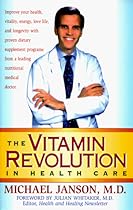 In addition to doing things that promote my own health, I believe in setting the example for my patients in exercise, diet, stress reduction and dietary supplementation. It is much easier to believe professionals who practice what they preach. (Since I only preach what I practice, it is easy for me to set a good example; it does not require any great virtue.) I expect to be setting the example for many years to come.
Science and Medicine
Part of what I am doing is experimental, but that does not mean that it is not documented. In addition to doing things that promote my own health, I believe in setting the example for my patients in exercise, diet, stress reduction and dietary supplementation. It is much easier to believe professionals who practice what they preach. (Since I only preach what I practice, it is easy for me to set a good example; it does not require any great virtue.) I expect to be setting the example for many years to come.
Science and Medicine
Part of what I am doing is experimental, but that does not mean that it is not documented. |
| Occasionally, some people report increased diarrhea from too much friendly flora supplementation.
Stinging Nettle (Urtica dioica)
The stinging nettle plant, also called common nettle, has little surface hairs that release a stinging acid when touched.
This property is lost in cooking or in processing to make supplements. The plant extract is used therapeutically as a diuretic and for its properties in relieving allergies and hay fever symptoms and its anti-inflammatory effects. It has a number of active components. |
| Critics of selenium supplementation have said that even though we live in areas with low soil selenium, the food supply comes from all over the country and the world, so local conditions should not make any difference. They have not adequately answered the epidemiological data, which shows that the local amount of selenium in the soil does make a difference in the disease rate.
Selenium is a component of an important antioxidant enzyme—glutathione peroxidase. This is essential for the full activity of vitamin E, because it helps to regenerate the unoxidized form of the vitamin. |
| The doses that have been harmful were from 2000 to 6000 mg per day, far above the recommended levels for therapeutic supplementation, but it should be used with caution. Isolated reports suggested similar adverse effects with doses as low as 500 mg, but these reports have not been confirmed. Many women have taken this level for treatment of premenstrual syndrome (PMS).
How to take
I usually recommend the 100 mg that is in Basic Multiple, but some other multis have reduced the dose of B6 to lower amounts because of the reports of neuropathy. I still think that 100 mg is quite safe. |
| The amount that you manufacture is sometimes inadequate for optimal health, and in these situations, supplementation is essential for treatment or prevention of illness. These accessory food factors include coenzyme Q10, L-carnitine, GLA (gamma-linolenic acid), some non-essential amino acids and other dietary supplements.
Besides all of these nutrients, there are other substances found in the food supply that are not considered essential but that, nonetheless, offer important health benefits. Many of these are bioflavonoids, or simply, flavonoids. |
| They often make the erroneous claim that the therapeutic value of dietary supplementation is not supported by scientific literature or that it is dangerous. This is simply the last gasp of a cadre of status quo protectors. They often appear to have the ulterior motive of supporting drug companies and a medical care system that needs to change. Sometimes their motives are not clear.
At a 1995 conference on nutrition controversies, sponsored by the University of Vermont, three of my research colleagues and one medical colleague spoke about the value of dietary supplements in health care. |
Dr. Vern Cherewatenko and Paul Perry
See book keywords and concepts |
 To their way of thinking, a little extra supplementation won't hurt.
Others, like myself, heartily endorse the use of vitamin and mineral supplements. We have seen the positive effects of these supplements on patients with diabetes and know that they have virtually no side effects.
For many years Western medicine has been opposed to the taking of supplements. When I went to medical school the prevailing thought was that "health nuts" were the only ones who took supplements. We were encouraged not to recommend supplements to our patients. To their way of thinking, a little extra supplementation won't hurt.
Others, like myself, heartily endorse the use of vitamin and mineral supplements. We have seen the positive effects of these supplements on patients with diabetes and know that they have virtually no side effects.
For many years Western medicine has been opposed to the taking of supplements. When I went to medical school the prevailing thought was that "health nuts" were the only ones who took supplements. We were encouraged not to recommend supplements to our patients. |
| A growing body of research shows that vitamin and mineral supplementation can improve the way your body responds to insulin. This research shows that vitamins with antioxidant properties lessen the impact of type 2 diabetes by "mopping up" free radical oxidants that occur as part of the disease process of diabetes and can damage nerves and blood vessels.
How? Make certain you are getting the recommended daily allowance (RDA) of the vitamins and minerals discussed in this chapter.
"Should I take more vitamins now that I have diabetes?"
"How much vitamin C is enough? |
| Within a few days your glucose tests should reflect the effects of the HCA/ chromium supplementation and the other steps in the Diabetes Cure. Most of my patients see their glucose levels rapidly approaching normal. Those who are taking medication are able to take less and less, which I recommend doing only after they talk to their physicians.
Even patients who are not able to stop taking medication entirely are able to reduce the amount they have to take. |
| Before increasing your vitamin E intake from the recommended daily average of 10 milligrams, talk with your health care team to be sure intensive vitamin E supplementation is right for you.
Angina. More commonly known as chest pain, angina occurs when blocked vessels restrict blood flow to and from the heart.
Treatment. Medications that widen vessels and arteries or reduce the buildup of plaque in the bloodstream.
Heart attack. Occurring when blocked vessels to the heart are completely blocked by deposits, heart attack is a significant issue for people with diabetes.
Treatment. |
James Braly M.D. and Ron Hoggan M.A.
See book keywords and concepts |
 To date, the published research that shows the most promise for remineralizing bones in celiac patients—beyond simply following a strict gluten-free diet—clearly favors magnesium and zinc, as well as vitamins D and K supplementation.
Regular Thyroid Testing
Laboratory testing for thyroid function is usually limited to blood tests that look closely at the thyroid-stimulating hormone (TSH) and free T4. Under usual circumstances, this is perfectly appropriate. To date, the published research that shows the most promise for remineralizing bones in celiac patients—beyond simply following a strict gluten-free diet—clearly favors magnesium and zinc, as well as vitamins D and K supplementation.
Regular Thyroid Testing
Laboratory testing for thyroid function is usually limited to blood tests that look closely at the thyroid-stimulating hormone (TSH) and free T4. Under usual circumstances, this is perfectly appropriate. |












